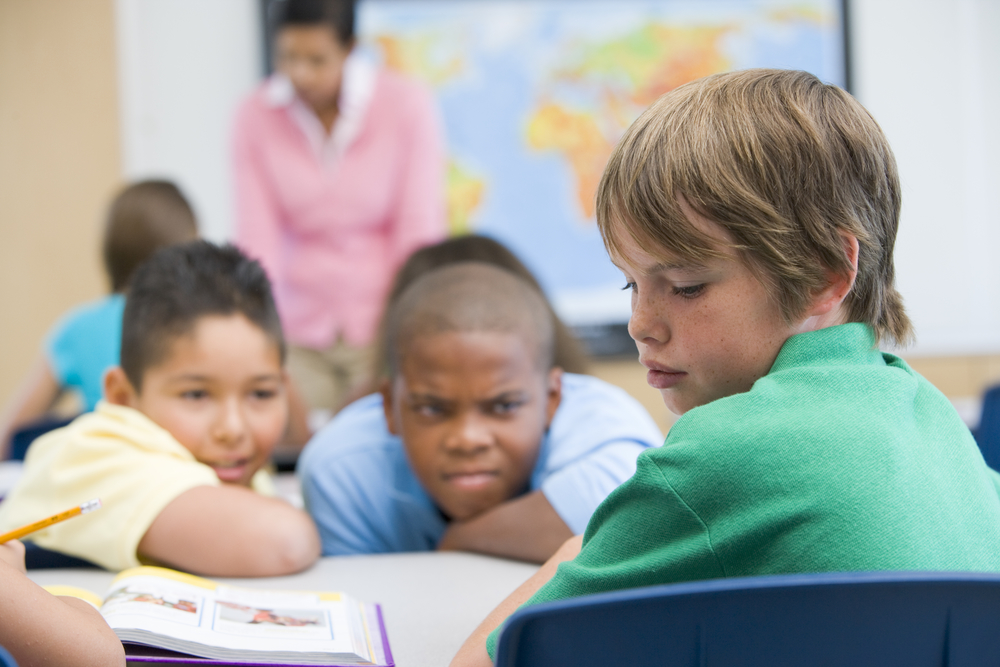What social psychology can teach us about how to deal with bullying.
We all have days when people are not particularly nice to us but bullying is a whole new level of mean that can leave people feeling completely disempowered. It even happens to us and we are grown-ups! So how much worse is it for our little ones that do not yet have the cognitive resources to work through the trauma of bullying. Here are 3 ways that you can help them avert bullying and cope with it in a healthy way when it does happen.
It would be helpful to understand some of the theoretical origins of bullying behaviour, so first a crash course in attachment theory. In the late 60’s and 70’s researchers, John Bowlby and Mary Ainsworth and their teams observed that an infants bond with their primary caregiver was an indicator of how they would fare later in life. Ainsworth categorised three types of attachment styles; Secure attachment where the infants’ needs were met and they felt safe so they trusted their caregiver, were not scared of abandonment and perceived themselves as worthy and likeable. Avoidant attachment where the caregiver was aloof and the infant learned to repress their needs knowing that they would be rebuffed. Anxious/Ambivalent attachment where the caregiver was inconsistent or overbearing in their caregiving and the infants were unusually anxious as they were never sure of when and how their caregivers would respond.
More recent research into attachment theory has observed that a child’s relationship with their parents, or their attachment style, was a key indicator of how they would deal with bullying. Children who were Anxious/Ambivalent were more likely to be bullied, as they were desperate to be liked, setting themselves up to be bullied by children with Avoidant attachment, who did not know how to deal with their feelings and emotions. Children with secure attachment, however, avoided this dynamic altogether because they refused to engage.
Understanding the dynamics of bullying helps us to identify 3 ways that we can teach our children to better deal with bullying.
1) Be compassionate.
Another wonderful theory from Social Psychology is the Attribution Theory where our judgments of a person are influenced by our assumptions, and we don’t factor in other influencing factors. For example, your barista is rude to you and so you think they are a grumpy, rude person. What is not factored into your perception of them is that their kid was sick that morning, so they were late to work after pranging their car and the boss yelling at them… anyone could be forgiven being grumpy on a day that started out like that. This theory can also apply to children who are bullying. They may not be bad kids, there may be other factors at play. So when a bullying situation arises it can be an opportunity to intervene and avert further incidents by teaching our children to be compassionate, and/or intervening in ways what that show the offending child kindness and compassion. It may be the only kindness they have experienced in a long time.
2) Don’t engage. Raise your children to know that it is ok to walk away from a confrontation.
As the research shows, children who don’t engage generally avoid bullying. If children have been taught that it is rude to walk away from someone who is talking to them, they may find confrontations a confusing scenario. Teach them that if they feel physically or emotionally unsafe it is ok to walk away and play with someone else or by themselves. Practice some phrases with them that they can use in these situations, for example, “I don’t feel comfortable with how you are treating me so I am walking away now.”
3) Not everyone will like you and that is ok. In public speaking there is a rule that a third of your audience will like you, a third will be on the fence, and the third won’t like you.
Naturally, we gravitate towards trying to convince the group that doesn’t like us that we are likeable, when in fact we would be better off focusing on the group that does like us. They provide us with a positive feedback loop that brings out the best in us and so we are more likely to convince the people on the fence that we are likeable. How does this apply to bullying?
It is natural to want to win people over if they don’t like us but teaching our children to be ok with not everyone liking them and to focus on the friends that are kind and they enjoy the company of sets them up to avoid the hurt of children that don’t like them. It also reinforces the concept of being confident in avoiding children that are unkind.
It is important to remember that the most influential lessons our children learn are not the ones told to them but the ones modelled by our behaviour. You can’t give your children what you don’t have, nor teach your children what you don’t yourself know. Research shows that children who witness abuse are more likely to either become abusers or the abused. To raise children that understand dignity and self-respect, as role models we must first treat ourselves and others with respect and dignity.
Emmanuella Grace is a Voice and Performance expert, entrepreneur and mother. She has helped thousands of people worldwide to find their voice and flourish. She is the founder of Melbourne based Voice and Performance coaching studio, Find Your Voice. Qualifications include a Masters in Music Performance Teaching (Melbourne University), Postgraduate Diploma in Psychology (UNE), Honors Bachelor of Music (Kingston University, London), advanced training in Alexander Technique, Estill Voice Training Level I, II and Advanced Certificate as well as previously serving on the board of the Australian Society of Performing Arts Healthcare (ASPAH).
http://findyourvoiceaustralia.com
http://www.emmanuellagrace.com
You may also like to read:
Support for Parents of Children being Cyber Bullied
What to do when your child tells you they are being bullied?









